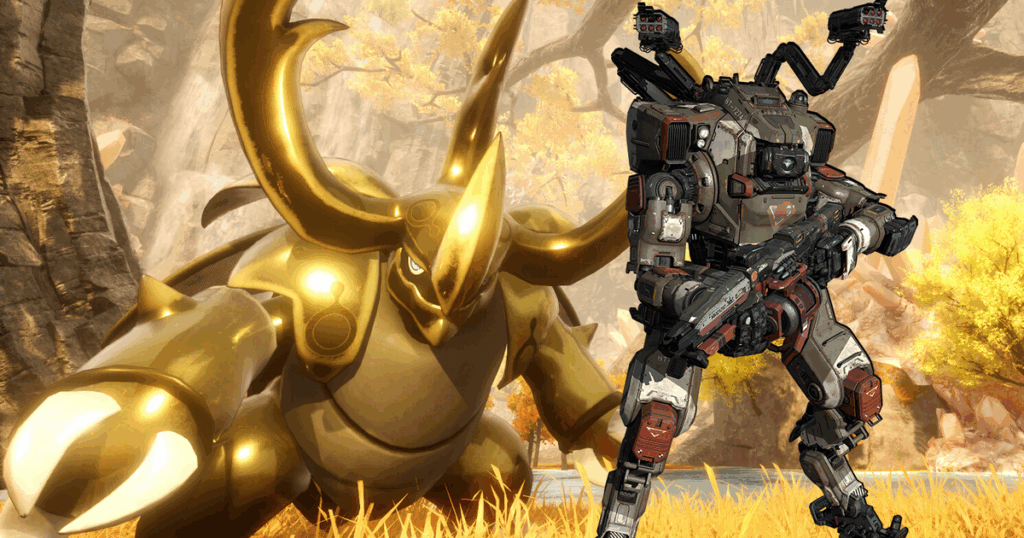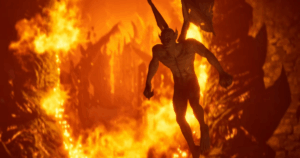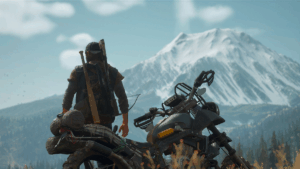Survival Evolved, Titanfall 2, and other games invalidate patent lawsuit

Pocketpair has fired a returning shot against Nintendo and the Pokémon Company in lawsuit against the Palworld developer, arguing that Nintendo’s claim to have patents on key game mechanics is “invalid” due to the existence of previously published games.
In a series of “preparatory briefs” submitted on February 21, 2025 (reviewed by legal publication gamesfray), Pocketpair argued that the existence of “prior art” covering Nintendo’s existing patents invalidates its claim of patent infringement. “Prior art” here references existing published games and patent applications from before the priority date of December 22, 2021.
These games include Pocketpair’s Craftopia, Studio Wildcard’s Ark: Survival Evolved, Square Enix’s Final Fantasy XIV, and somewhat unexpectedly, Respawn Entertainment’s Titanfall 2.
As gamesfray points out, it’s notable that Pocketpair doesn’t just reference individual games, but also player-made mods for existing games like a 2020 Dark Souls 3 mod “Pocket Souls” and a Pokémon-themed mod for Ark. The mods appear to be cited as examples of types of gameplay available to Pocketpair as inspiration during the time period.
Titanfall 2, Tomb Raider, and Far Cry 5 are surprising citations in the Palworld patent case
The citation of games like Titanfall 2 might surprise developers since Nintendo’s patent claims had to do with the game mechanic of capturing in-game characters with capture balls and riding these characters. Gamesfray explains that Pocketpair’s contention isn’t that these contain the foundations for a combination of game mechanics that culminate in Palworld’s gameplay—or in some cases, outright display the patented mechanics concerning “capturing” and “smooth switching” of rideable objects.
For example in Titanfall 2, Respawn implemented a mechanic for the player to “catch” incoming bullets and throw them back at the enemy. If a developer took inspiration from that mechanic and created a system that applied that “catch and throw” loop to creatures instead of bullets, Pocketpair’s argument is essentially that even if the game was released after the December 2021 patent filing, its existence is based “prior art” and can’t be considered a violation.
In this case, it’s arguing that its own game Craftopia is the “starting point” to arrive at the mechanics covered in the patent, and that one need only “combine” Craftopia with prior mechanics to organically arrive at the patented material without violating them.
Pocketpair also cited several pre-2021 games from Nintendo’s library including The Legend of Zelda, Pikmin 3 Deluxe, and Pokémon Legends: Arceus as games with mechanics that could be “combined” with Craftopia.
It’s difficult to tell if these arguments justify invalidating Nintendo’s 3 patents. Though Pocketpair’s reasoning makes sense on the surface, these arguments are taking place before a patent law court, which may take a more hard-and-fast view when it comes to patented game mechanics.
However things shake out, Pocketpair has raised one important point: the volume of video game releases in the last 10 years has created a situation where developers iterate fast and take inspiration from each other’s game mechanics at a rapid-fire rate, meaning there are complex combinations of mechanics hitting the marketplace on a yearly basis. Unlike the early days of restrictive video game patent filings, it’s more difficult to argue that any developer has a unique claim on a specific mechanic.







